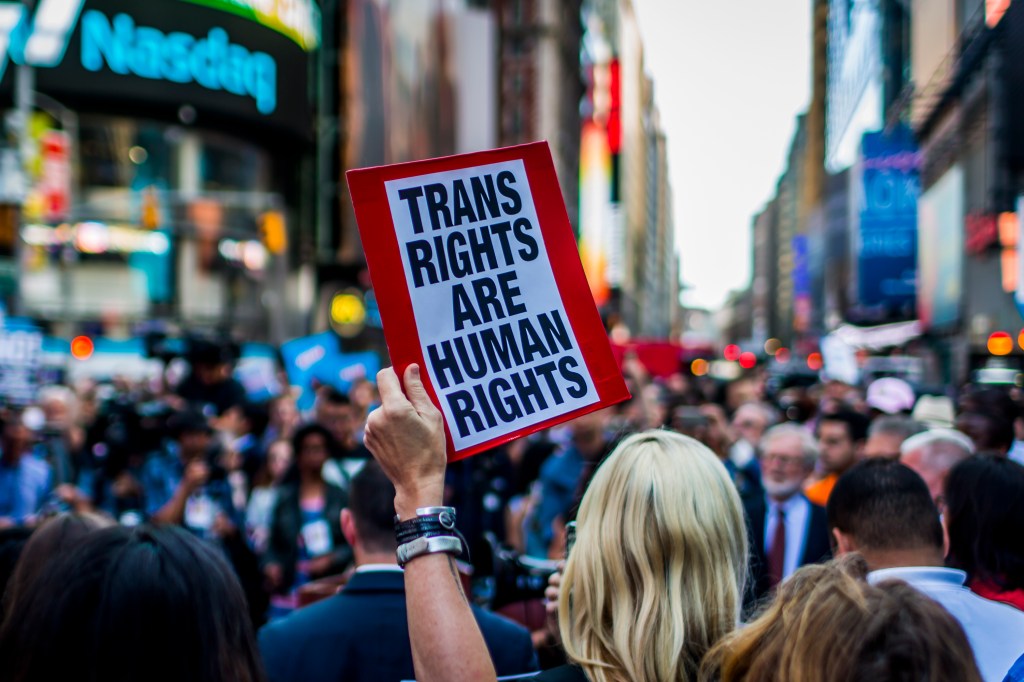Crucial new report shows 90 per cent of LGBTQ+ youth negatively affected by anti-LGBTQ+ politics

A new rport reveals the impact of anti-LGBTQ+ politics (Kent Nishimura / Los Angeles Times/ Erik McGregor/LightRocket via Getty Images)
This story contains discussions about suicide.
A new report from The Trevor Project reveals the stark impact anti-LGBTQ+ policies and political narratives are having on queer youngsters.
The suicide prevention and crisis intervention organisation for queer youngsters released its annual National Survey on the Mental Health of LGBTQ+ Young People, on Wednesday (1 May).
More than 18,000 young queer people from across the US, aged between 13 and 24, were surveyed, with the results showing they continue to face high levels of mental-health distress and suicide risk, as well as experiencing increased rates of bullying, discrimination and threats of violence.
The report also highlights the impact the political landscape is having on queer young people, with 90 per cent of those who responded saying their wellbeing was negatively affected by politicians and pundits’ rhetoric. Fifty-three per cent said their wellbeing was affected “a lot”.
In addition, 45 per cent of trans and non-binary young people reported that they or their family had considered moving states because of anti-LGBTQ-related politics and laws where they currently lived.
The findings come amid a wave of rhetoric in the US, where bills targeting LGBTQ+ inclusion, discrimination protections, gender-affirming healthcare, drag performances and same-sex marriage are being tabled by lawmakers.
As it stands, LGBTQ+ issues – and in particular trans rights – are set to be one of the biggest battlegrounds of this year’s presidential election.
Commenting on the findings, Janson Wu, a senior director of state advocacy and government affairs at The Trevor Project, said: “Much of our efforts to address the public-health crisis of suicide among LGBTQ+ young people are made that much harder by the ongoing wave of anti-LGBTQ+ policies pushed by extremist lawmakers across the country.
“With such striking numbers and families wanting to uproot to seek safety, lawmakers must seriously reconsider the real and damaging impact their policies and rhetoric create.
“No ‘political victory’ should be worth risking the lives of young people.”

The report also revealed the extent to which LGBTQ+ young people had seriously considered attempting suicide in the past year (39 per cent), with 12 per cent of all queer youth saying they had actually tried to take their own life.
This figure is higher for trans and non-binary youth, with close to half (46 per cent) of gender-diverse young people considering suicide. LGBTQ+ youth of colour reported higher rates than their white peers.
Almost a quarter reported being physically threatened or harmed in the past year due to either their sexual orientation or gender identity.
On a more positive note, 54 per cent of transgender and non-binary young people found their school to be gender-affirming, and those who did reported lower rates of attempting suicide, while LGBTQ+ youngsters who reported living in very-accepting communities attempted suicide at less than half the rate of those who in very-unaccepting communities.
However, 49 per cent of respondents aged 13 to 17 experienced bullying in the past 12 months, resulting in significantly higher rates of suicide attempts.
And 66 per cent – including, on average, seven in every 10 trans or non-binary respondent – reported suffering symptoms of anxiety, while more than half said they had experienced signs of depression.
Despite the mental-health challenges these young people faced, as many as half of those surveyed were unable to access the support they needed, the figures showed.
Dr. Ronita Nath, the vice-president of research at The Trevor Project, told PinkNews that the report “sheds light on a sombre reality” facing young queer people.
“LGBTQ+ young people are disproportionately impacted by suicide compared [with] their straight and cisgender peers. LGBTQ+ youth suicide is a public-health crisis and should be treated as such,” she said.
“Yet, despite consistent data addressing these issues, we are still witnessing relentless attacks from lawmakers and politicians seeking to threaten the rights of LGBTQ+ young people. So far, more than 500 anti-LGBTQ+ bills have been considered in states across the country, most of which [target] transgender and non-binary young people.
“Our research found that a staggering 90 per cent of LGBTQ+ young people said their well-being was negatively impacted by recent politics. Simply put, respecting and supporting the mental health and wellbeing of young people should not be up for political debate.
“This survey is an urgent reminder that collective action is needed across the board, and we all have a role to play in protecting, affirming and advocating for LGBTQ+ young people everywhere.”
Suicide is preventable. Readers in the UK who are affected by the issues raised in this story are encouraged to contact Samaritans on 116 123 (www.samaritans.org), or Mind on 0300 123 3393 (www.mind.org.uk). Readers in the US are encouraged to contact the National Suicide Prevention Line on 1-800-273-8255.
How did this story make you feel?

